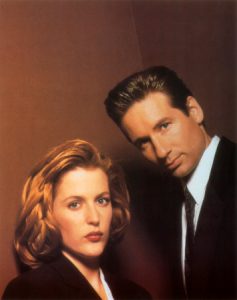The Russian writer Count Leo Tolstoy famously began his novel/brick Anna Karenina with the observation that “happy families are all alike; every unhappy family is unhappy in its own way.” This made for a very clever and pithy start to a book about an unfaithful woman and generalised aristocratic misery, but as aphorisms go it’s exactly wrong. Unhappy couples are amazingly, tediously, predictable. Unhappy couples always fight over the same things – lack of money, lack of intimacy and communication, lack of sex, infidelity (i.e. too much sex, or at least too much sex with the wrong person or persons).
Conservatives would have you believe that the culprit is The Gays. Gay marriage is, after all, currently destroying the institution of marriage in ten countries, four American states and Mexico City. And sure, our editor Sarah Jaffe might point to capitalism as part of the reason why the divorce rate’s so high, since so many of us are so badly paid at our jobs that we don’t have the time or energy to make our relationships strong over long periods of time. But I have a much better culprit: television.
“Why would you blame television, Mary-Beth?” I hear you asking. That’s an excellent question, anonymous internet reader. I reply.
We’ve all done it. Sat down in front of the television to catch a fresh new hyped series and then BAM. The very first episode. The dreaded culprit: Unresolved Sexual Tension between the two main characters (always a man and a woman, gays and lesbians have hitherto almost entirely escaped UST). Unresolved Sexual Tension is a foul trick designed by television writers designed to hook us in to watch/download/watch on Hulu their show, week after week, just to see if this perfect couple will finally get it together. Aww etc.
You know the type, you’ve seen it over and over in every genre possible. Mulder and Scully. Ross and Rachel. Booth and Brennan. Castle and Beckett. O’Neill and Carter. (If you picked all five shows then you watch at least as much TV as I do: kudos). At best, when writers really want to stretch themselves, they go for the time honoured completely unhomoerotic love triangle—Bill-Sookie-Eric on True Blood, or Jacob-Edward-the girl on Twilight (ok that’s a book and film series, I cheated, you caught me). We’ve seen it literally one million times: I’ve measured.

What is amazing given all this repetition is how these romance narratives are so utterly banal – all they can do is UST. Once the couple has gotten together, very often the writers break them apart again, and the whole process begins anew, or the show dies with the resolution of the sexual tension ala Moonlighting. The focus on Getting Together means that we’re collectively stuck at the “does he/she fancy me” stage of a relationship, a undoubted sign of incredible immaturity. We like puppy love, it seems, but not much else.
Interestingly, of all the shows that started with the recent fall line-up in the US, the new season of House appears to be attempting to do something different. After years of boring us with the House/Cuddy sexual tension, the writers finally took pity on their audience and got the two together. In the fascinating first three episodes of the season, House and Cuddy have struggled to find a way to make their antagonistic relationship work, even with their shiny new love and sex feelings helping things along. For years, House has destroyed his relationships with the people around him in his single-minded pursuit of diagnoses, and now he must battle his own self-destructive instincts and try not to mess things up. Similarly, Cuddy must try to balance her love for House with her duties as a mother and the hospital administrator, as well as recognise that her new partner’s not exactly the easiest person to be with even when he is (thus far) trying.
Most of us live far richer, far more interesting love lives than the compulsively repeated UST narrative would suggest. I suggest that we reverse Tolstoy’s dictum: unhappy couples are far more alike than happy. Happiness requires inventing your own narrative with that person (or people, polyamory needs it own narratives too!) and that’s what we don’t see in romances. It’s much easier to just tread the same path over and over, but it’s less exciting too.
The question House seems to be asking is: how can these two people who love each other actually make it work? Isn’t that a much more interesting question than will these two crazy kids finally get together?
